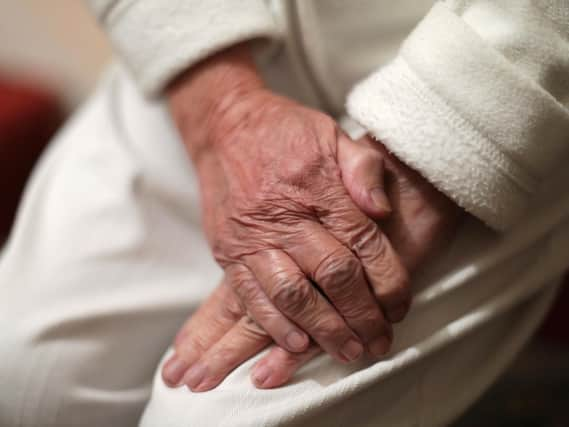Why hundreds of thousands of women could benefit from pension ruling - Jillian Thomas


Changes in state pension age have meant we need to work longer than we may have anticipated.
And those changes have also led to some strange anomalies.
A little-known ruling means that women who were members of defined benefit pension schemes (often known as a final salary pension) in the 1990s may be due a payout. And I want to urge you to see if that could be you.
Advertisement
Hide AdAdvertisement
Hide AdIn the past women received their state pension at 60 and men at 65, but due to sexual discrimination legislation this was equalised initially at 65 for both sexes. Where once I could expect my state pension at 60, I am now currently looking at 66. For my slightly younger colleagues that figure is 67, and for my very young friends it is 68.
Of course, it is fair that women and men should be treated the same, particularly when women statistically outlive men. But for women born in the 1950s the changes were particularly harsh.
The change has caused various issues and led to campaigns, such as that by WASPI (Women against State Pension Inequality), who say women were not given proper notice of the increase in pension age. Their fight is now with the Parliamentary and Health Service Ombudsman.
But while that battle goes on, there has been a quieter one going on in the courts which will also have an impact on women of a certain age.
Advertisement
Hide AdAdvertisement
Hide AdIt is all about something called Guaranteed Minimum Pension equalisation. If you are a woman and had an occupational defined benefit pension and were ‘contracted out’ between May 17, 1990 and April 5, 1997, then this could be you. There could be hundreds of thousands of women who may benefit.
But it will also have an impact on our pension providers who, it is estimated, may have to find up to £20bn to fill the gap.
Contracting out meant contracting out of payments to what was then called the ‘additional’ state pension.
Whilst a complex area, it effectively meant you and your employer could pay less National Insurance into the state system. Again, very simplistically, payments and pension scheme calculations then were based on women retiring at 60 and not 65 or older.
Advertisement
Hide AdAdvertisement
Hide AdContracting out finished in 2016, but it has taken until now for the contracting out part of the occupational schemes to catch up with the potential deficit and also the impact to the pensions to be paid to these ladies caught up by this.
The High Court in England ruled on October 26, 2018 that all Guaranteed Minimum Pension benefits in UK pension plans must be equalised for males and females. The outcome of this judgement affects any UK defined benefit scheme which was contracted out of the state pension arrangements resulting in members of the scheme having a Guaranteed Minimum Pension between May 17, 1990 and April 5, 1997.
In November last year there was further clarification on the 2018 judgement, it was ruled that unlike other scenarios where rectification was required, there is no obligation for pension providers to contact you to rectify the situation. Instead, it is up to you to check and make representation to the scheme trustees.
Guarantee Minimum Pension equalisation could add between one and four per cent of liabilities to each pension scheme. The cost is very specific to a scheme’s circumstances and membership. The total cost across all affected pension schemes is estimated to be £15-20bn.
Advertisement
Hide AdAdvertisement
Hide AdSo, while the results of the ruling could be good news for the individual, it is another potential colossal cost to the pension schemes, with the potential for the funding position of these schemes to be affected. In the current climate, I wonder how many pension schemes will really feel the pain.
By Jillian Thomas - Managing Director – Future Life Wealth Management
Support The Yorkshire Post and become a subscriber today. Your subscription will help us to continue to bring quality news to the people of Yorkshire. In return, you'll see fewer ads on site, get free access to our app and receive exclusive members-only offers. Click here to subscribe.
Comment Guidelines
National World encourages reader discussion on our stories. User feedback, insights and back-and-forth exchanges add a rich layer of context to reporting. Please review our Community Guidelines before commenting.